James Clapper has written the best book on intelligence in a generation. The former Director of National Intelligence (DNI) is the author of “Facts and Fears: Hard Truths from a Life in Intelligence” at a critical time in our nation’s history, and he offers a crucial insight into the threat we face from a foreign adversary. His great sense of humor also makes the book a pleasure to read.
Clapper is an intel brat, the son of an intelligence officer who began his uniformed military intelligence career in the Kennedy administration. In his 32 years in Air Force Intelligence, he and his family moved 23 times across the world; a graphic illustration of the practical costs of serving your country. He was a professional specialist in signals intelligence, and became director of the Defense Intelligence Agency when he retired from the Air Force in 1995. George W. Bush brought him back to the intelligence community in 2001 to run the National Imagery and Mapping Agency. Senator Barbara Mikulski of Maryland called Clapper “a nighthawk standing sentry over the United States of America.”
In 2010, President Barack Obama appointed Clapper to be Director of National Intelligence, the fourth appointment to the post in the DNI’s five years in existence. The job was widely regarded as unmanageable. If Clapper failed, it was assumed that the Congress would have to reconsider the post-9/11 decision to create the job in the first place. Clapper lasted over six years and transformed the position.
This book relates how the intelligence community dealt with the host of challenges and changes of the last decade. Clapper provides insights into the attack on our mission in Benghazi; the treason of Edward Snowden and the enormous damage he did to America’s safety; and the wars in Syria, Ukraine, and Afghanistan. The narrative also provides new insights into how the community found Osama bin Laden’s hideout in Pakistan.
He also walks the reader through the increasingly complicated relationship with a Congress that has become more polarized and partisan than ever, explaining why congressional oversight is so crucial for the community and the country. He also admits to the mistakes made by the intelligence community and himself, particularly in Iraq in 2003.
One development that has gotten little public attention is how the intelligence community opened its doors to the LGBT community. When I started with the CIA 40 years ago, the policy was zero-tolerance for LGBT personnel, and immediate firing if discovered. Today they are on the inside, and Jim Clapper is one of those responsible for the transformation.
But the most important issue the book addresses is the Russian attack on the 2016 presidential election. Clapper relates how the community gradually collected incontrovertible evidence of the Russian assault using an aggressive multifaceted campaign to swing the election in favor of Donald Trump. By October 2016, he was warning publicly about the Russian covert operations, but his comments were lost amid the news hurricane of the upcoming vote.
In Clapper’s view, Vladimir Putin was in command of the plot. Putin is a “throwback” to the Czars, he writes, and a man determined to right the “geopolitical disaster” of the 20th century when America defeated the Soviet Union in Afghanistan and precipitated the collapse of the Soviet empire. The book strongly suggests that the intelligence community has clear and compelling evidence for this judgement that is not yet declassified.
The intelligence community rightly does not assess American politics and has no capabilities to do so. So it has never made a judgment call on how much impact Putin’s covert operations had on the election. As a private citizen, Clapper offers his opinion that the Russians did influence the outcome by carefully targeting voters in the key battleground states.
Clapper was in Oman on a Middle East trip to visit our allies when Trump won the election. In Israel two days later, he found Prime Minister Benjamin Netanyahu was “jubilant with the results.” Back in Washington, President Barack Obama tasked the DNI to prepare a comprehensive assessment of what the Russians had done to the election. It was published just before the inauguration.
When Clapper left government in January 2017, the intelligence community did not have a smoking gun to establish whether the Trump campaign had conspired with Putin—but it was self-evident, according to Clapper in his current capacity as a private citizen—that the two had worked in parallel operations, which reinforced each other. Clapper keeps open the possibility that there was a secret conspiracy between the Russians and the campaign.
Most disturbing is the apathy many Americans have in reaction to the Russian interference in our election process. No systematic review has been done to prevent a recurrence. Indeed, the Russian covert action has never stopped. Putin is always trying to sway American politics in his favor. Our country is under attack by a foreign power, and the implications put us in uncharted waters.
The Brookings Institution is committed to quality, independence, and impact.
We are supported by a diverse array of funders. In line with our values and policies, each Brookings publication represents the sole views of its author(s).

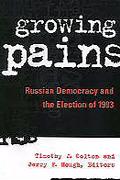
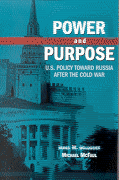
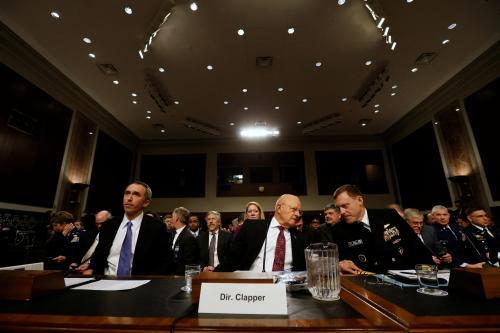
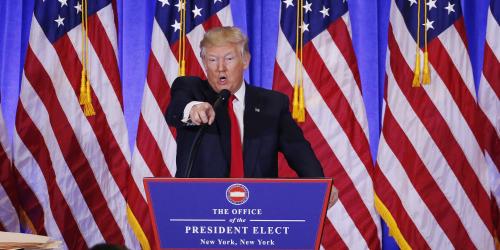



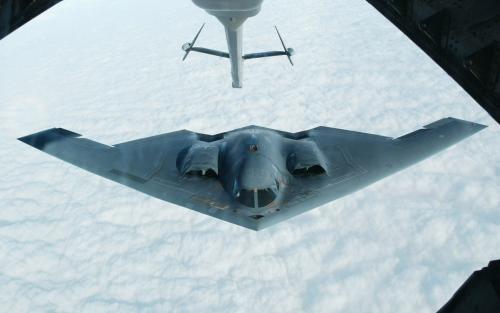

Commentary
In new book, James Clapper offers an essential view into decades of intelligence challenges
May 31, 2018